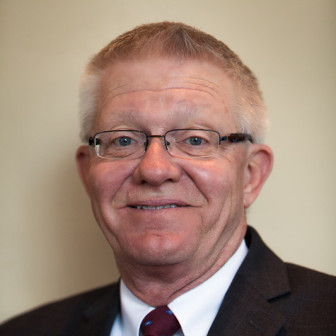 When I learned Michael Botticelli had been selected to be the director of the White House Office of National Drug Control Policy, I happened to be reading an excellent book on the topics that will be on his mind every day on the job and for the rest of his life.
When I learned Michael Botticelli had been selected to be the director of the White House Office of National Drug Control Policy, I happened to be reading an excellent book on the topics that will be on his mind every day on the job and for the rest of his life.
David J. Linden’s “The Compass of Pleasure” has enlightened me as to the historical — and prehistorical — use of substances that influence the brain. Linden’s book brings the neurobiology from modern research into context with descriptions of drug use by cultures around the world and through thousands of years of human experience. The physical, social and political ramifications of addiction are explained in ways that help us understand how public policy — both good and bad — can greatly affect populations.
I recommend his excellent and entertaining analysis. Learning more about addiction at the same time a promising new drug czar is appointed gave me new reason for optimism. Any such appointment is big news but this is even more media-worthy because Botticelli is a recovering alcoholic who has been sober for 25 years. Many reacted to this choice with a collective “Finally!”
The war on drugs created decades of multibillion-dollar budgets used to arrest, try and imprison thousands of Americans for the intrinsic and biologically understandable pursuit of pleasure. That pursuit certainly can create real problems for addicts as individuals and for the communities they live in but criminalization and incarceration has proven to be an inadequate and expensive response to a public health problem.
The publication of Linden’s book and the appointment of Director Botticelli coincide with the decriminalization or legalization of marijuana by states and local jurisdictions. At the same time, our justice system is creating special drug courts. There is ample evidence to support the positive outcomes of this approach. The authority of the court coupled with adequate treatment resources yield extraordinary change in individuals resulting in conversion of addicts leaning toward criminality into tax-paying citizens.
Botticelli says that “part of our job now is making sure that we have adequate treatment and that we make sure that we’re not throwing people in jail who have a substance abuse disorder.” He advocates for community-based recovery support centers and for research into the medicinal qualities of marijuana. He also notes that research shows harmful effects of marijuana on the developing brains of children.
Linden tells his students that this is the golden age of brain research. The rapidly accumulating information, technological possibilities and public/private funding create great possibilities for new knowledge and treatment approaches. The White House seems committed to using science and cultural understanding to combat the huge negative effects of addiction.
Why should those of us active in juvenile justice policy be interested? The largest common characteristic of those youth in secure custody is substance abuse. Of course, there are other common indicators — poor mental health, trauma, poverty — but the number of those who use drugs often exceeds 75 percent, research shows. That number alone makes understanding the biology and history important to both practitioners and policymakers. But how do we fit into the public policy puzzle?
Most readers of this article are likely to be politically interested and influential. As daily witnesses to the tragic effects of drug use by children, you have evidence that others don’t. Failed past policies still seem to motivate popular culture — we can watch dozens of TV shows dedicated to the pursuit of drug dealers with expensive, high-tech military tools — but where can you view stories of redemption through treatment? So those of us armed with scientific knowledge and personal experience have an opportunity right now.
Labor Day traditionally starts the dash to win elections. Politicians will be rolling out announcements of millions spent for new roads, tax breaks for big companies to build new plants, grants for new fire trucks and improvements to city parks. They also will be unusually accessible — making appearances in dozens of venues each day.
When a candidate asks, “What’s important to you?” and before she starts the stump speech about what she thinks is important, prepare an answer.
Perhaps something like this: Our country, community and American society should respond to issues that research and simple statistics reveal are important and far-reaching problems — such as substance abuse and addiction, mental health problems and the consequences of trauma to children. These issues cannot be solved by pseudo-moralizing, criminalization or incarceration. We need more research, more treatment and fewer prisons. We will vote for that.
Judge George W. Timberlake, Ret., has served as Chair of the Illinois Juvenile Justice Commission, since his appointment by Illinois Gov. Pat Quinn in January 2010, and he is an alternate member of Federal Advisory Committee on Juvenile Justice. He was a trial court judge for 23 years prior to his 2006 retirement as Chief Judge of Illinois' Second Circuit, which is comprised of 12 counties in southeastern Illinois. Timberlake also is a member of the Illinois Models for Change Coordinating Council, the Illinois Juvenile Justice Leadership Council, the Redeploy Illinois Oversight Board, and the board of the Juvenile Justice Initiative, a statewide advocacy coalition. A resident of Mt. Carmel, Illinois, Timberlake earned a bachelor's degree and MBA from the University of Illinois at Urbana-Champaign and a law degree from the University of Illinois College of Law.